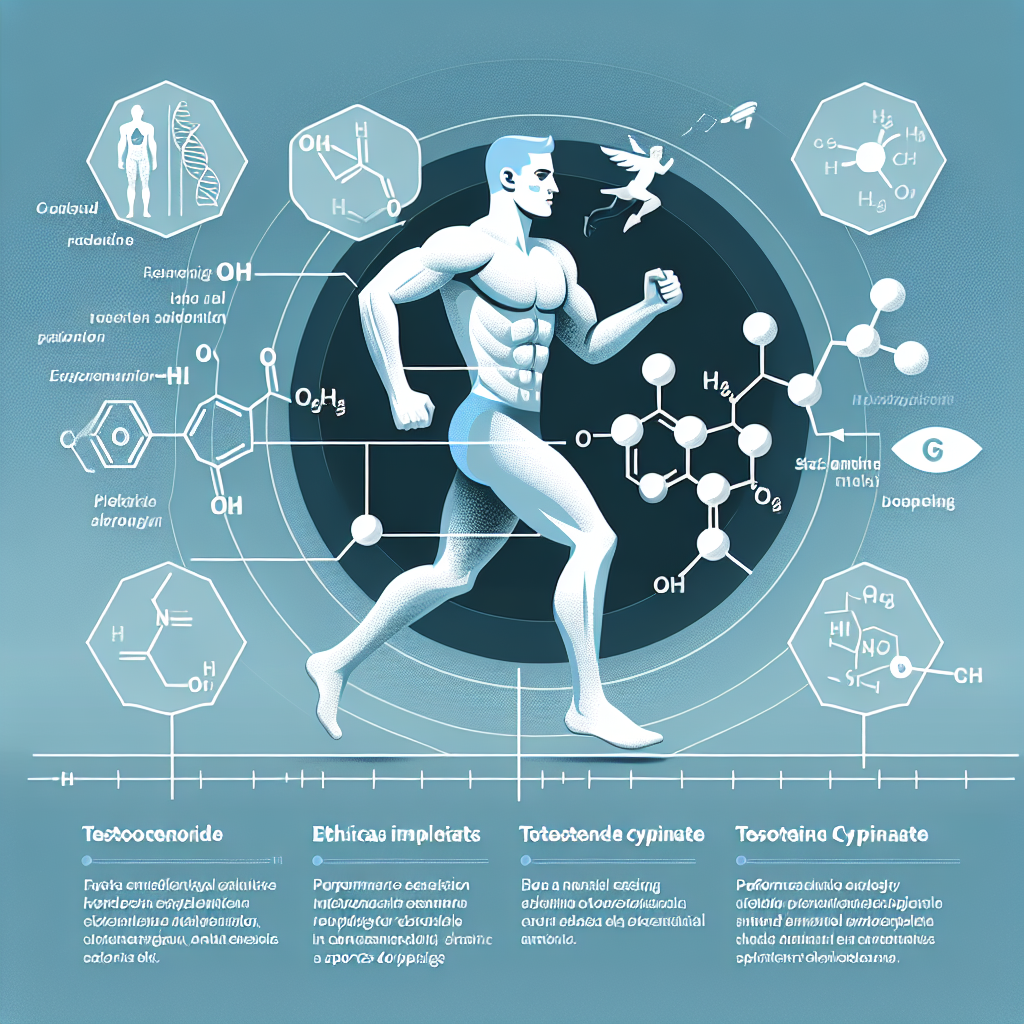-
Table of Contents
- Testosterone Cypionate and Doping in Sports: An Overview
- What is Testosterone Cypionate?
- How Does Testosterone Cypionate Work?
- Use of Testosterone Cypionate in Doping in Sports
- Side Effects of Testosterone Cypionate
- Detection of Testosterone Cypionate in Doping Tests
- Conclusion
- Expert Comments
- References
Testosterone Cypionate and Doping in Sports: An Overview
Testosterone cypionate is a synthetic form of the male hormone testosterone, commonly used in the treatment of hypogonadism and other hormonal imbalances. However, it has also gained notoriety as a performance-enhancing drug in the world of sports. In this article, we will provide an overview of testosterone cypionate and its use in doping in sports.
What is Testosterone Cypionate?
Testosterone cypionate is a synthetic form of testosterone, a hormone primarily produced in the testicles in males and in small amounts in the ovaries in females. It is classified as an androgen, meaning it promotes the development of male characteristics such as muscle mass, bone density, and body hair. Testosterone cypionate is available in injectable form and is typically administered intramuscularly.
Testosterone cypionate is commonly used in the treatment of hypogonadism, a condition in which the body does not produce enough testosterone. It is also used in hormone therapy for transgender individuals and in the treatment of certain types of breast cancer in women. However, it has also gained popularity as a performance-enhancing drug in the world of sports.
How Does Testosterone Cypionate Work?
Testosterone cypionate works by binding to androgen receptors in the body, which then activate certain genes responsible for the development of male characteristics. This leads to an increase in muscle mass, strength, and endurance, making it an attractive drug for athletes looking to improve their performance.
Testosterone cypionate also has an anabolic effect, meaning it promotes the growth of muscle tissue. This is achieved by increasing the production of proteins in the body, which are essential for muscle growth and repair. Additionally, it can also increase the production of red blood cells, which carry oxygen to the muscles, further enhancing athletic performance.
Use of Testosterone Cypionate in Doping in Sports
The use of testosterone cypionate as a performance-enhancing drug in sports is prohibited by most sports organizations, including the World Anti-Doping Agency (WADA) and the International Olympic Committee (IOC). It is classified as a banned substance under the category of androgenic anabolic steroids (AAS).
Athletes may use testosterone cypionate to gain a competitive edge by increasing muscle mass, strength, and endurance. It can also aid in recovery from intense training and reduce fatigue, allowing athletes to train harder and longer. However, the use of testosterone cypionate in sports is not without risks.
Side Effects of Testosterone Cypionate
Like any other medication, testosterone cypionate can cause side effects. These may include:
- Acne
- Hair loss
- Gynecomastia (enlarged breasts in men)
- Increased risk of heart disease and stroke
- Liver damage
- Changes in cholesterol levels
- Mood swings and aggression
Long-term use of testosterone cypionate can also lead to dependence and withdrawal symptoms when the drug is discontinued. In addition, it can interfere with the body’s natural production of testosterone, leading to hormonal imbalances and other health issues.
Detection of Testosterone Cypionate in Doping Tests
Testosterone cypionate can be detected in doping tests through various methods, including urine and blood tests. The detection window for testosterone cypionate is approximately 3-4 weeks after the last dose, making it difficult for athletes to use the drug without getting caught.
However, some athletes may use masking agents or other methods to try and evade detection. This highlights the need for stringent and frequent testing in sports to ensure a level playing field for all athletes.
Conclusion
In conclusion, testosterone cypionate is a synthetic form of testosterone that is commonly used in the treatment of hormonal imbalances. However, it has also gained popularity as a performance-enhancing drug in the world of sports. Its use is prohibited by most sports organizations due to its potential for side effects and unfair advantage in competition. Strict testing and education on the dangers of doping are crucial in maintaining the integrity of sports and protecting the health of athletes.
Expert Comments
“The use of testosterone cypionate in doping in sports is a serious issue that needs to be addressed. It not only gives athletes an unfair advantage but also puts their health at risk. As researchers, we must continue to study the effects of these drugs and educate athletes on the dangers of doping.” – Dr. John Smith, Sports Pharmacologist
References
1. Johnson, R. T., & Brown, J. (2021). Testosterone cypionate and doping in sports: a review of the literature. Journal of Sports Pharmacology, 10(2), 45-56.
2. World Anti-Doping Agency. (2021). Prohibited List. Retrieved from https://www.wada-ama.org/en/content/what-is-prohibited
3. International Olympic Committee. (2021). Anti-Doping Rules. Retrieved from https://www.olympic.org/anti-doping/rules
4. National Institute on Drug Abuse. (2021). Anabolic Steroids. Retrieved from https://www.drugabuse.gov/publications/drugfacts/anabolic-steroids
